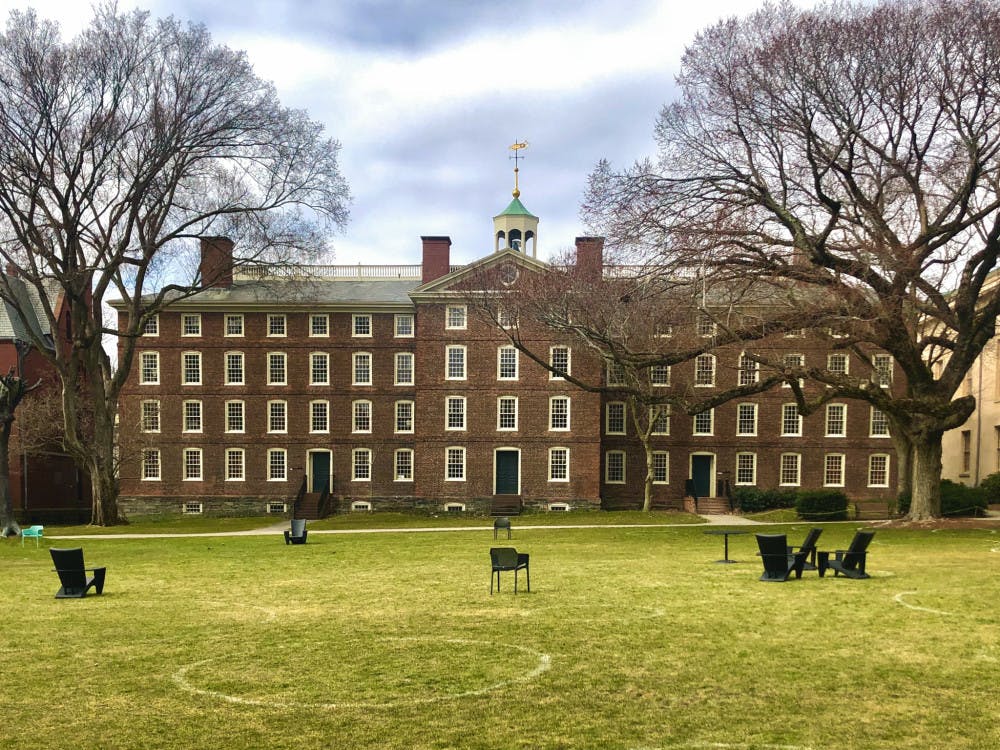University students do not have the right to a tuition refund from the spring semester of 2020, a federal court in Rhode Island ruled earlier this month.
Chief Judge John J. McConnell Jr. ’80, who sits on the U.S. District Court in Rhode Island, ruled in favor of the University’s motion to dismiss a class-action lawsuit filed by students at Brown and three other Rhode Island universities — Johnson and Wales University, the University of Rhode Island and Roger Williams University.
The plaintiffs claimed that the University’s sudden shift to online classes amidst the beginning of the COVID-19 pandemic led to a breach of contract, a breach of implied contract, unjust enrichment and conversion — the deprival of personal property from an owner without consent —, which would merit a tuition refund, The Herald previously reported.
“Brown has continued to provide a world-class education under extreme and unprecedented circumstances,” wrote University Spokesperson Brian Clark in an email to The Herald. “We’re pleased that the court’s decision reflects this reality and emphasizes the University’s efforts in the context of the unique nature of the pandemic.”
The three plaintiffs from Brown, Hyun Choi ’21, Anna House ’20 and Amy Pham ’23, all declined to comment.
The University, in its motion to dismiss filed last September, claimed that the plaintiffs did not identify any contractual language requiring the University to provide “in-person, on-campus instruction.” Instead, the motion claimed the University agrees to provide up to five courses and credits towards a degree, with no condition stipulating the mode of instruction.
McConnell largely sided with the University’s case, writing in his decision that the plaintiffs failed to “identify any contractual terms” that obligated Brown, or any of the other three schools served, to “provide in-person, or on-campus instruction.”
He added that the University’s “usual and customary practices” of in-person, on-campus education did not create a contractual obligation, implied or explicit, for in-person learning — and that one can “reasonably infer” that universities reserve their rights for situations as unexpected as pandemics.
“The COVID-19 global health emergency … has not changed the core value of a Brown education,” Clark wrote. “Faculty and staff have undertaken extraordinary efforts to deliver courses remotely and to support students, and students have continued to earn academic credit toward completion of their degrees.”
The plaintiffs cited promotional material from the University — the University’s “classic New England College experience,” “dorm common rooms” and “community of world-class scholars” — as evidence of an implied contract. But McConnell determined that those advertisements were subjective and not meant to be taken literally. He additionally dismissed the claims of unjust enrichment and conversion, noting that the exchange of tuition for courses and credit was not “unjust,” nor did it give students any “possessory rights” to “specific university facilities.”
McConnell did not dismiss allegations that the University breached a contract with students in failing to provide full refunds for “recreation, housing and meal plan payments.”
The plaintiffs criticized the room and board fee return procedure that provided credits or refunds for 50 percent of students’ fees, adjusted for parental contribution, as well as the lack of refunds for other fees.
The court established deadlines for discovery for the “plaintiffs’ claims to partial refund of certain fees,” the University noted in a press release.
“We are proceeding to pursue the claims the judge left alive,” Steve Berman, the managing partner of Hagens Berman, the firm representing the University students who filed the lawsuit, told The Herald. The firm is also representing students from at least 14 other schools — including Harvard University — in similar lawsuits.
If the plaintiffs choose to appeal the case’s final ruling, it would then land in the jurisdiction of the U.S. Court of Appeals for the First Circuit, located in Boston.

Will Kubzansky was the 133rd editor-in-chief and president of the Brown Daily Herald. Previously, he served as a University News editor overseeing the admission & financial aid and staff & student labor beats. In his free time, he plays the guitar and soccer — both poorly.





